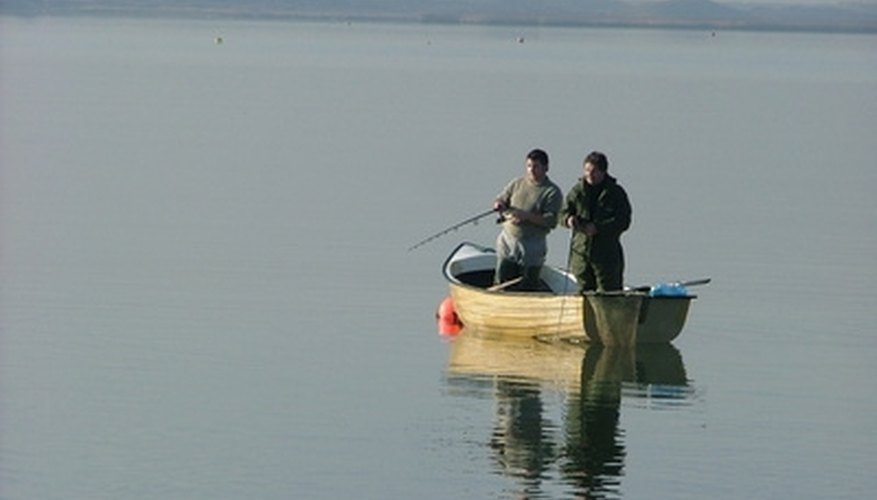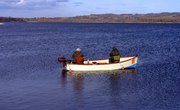
Shakespeare spinning reels are a brand of open-face fishing reel that hangs below the rod and uses a wire bail that rotates around the spool to retrieve line. Because the spooled line is fully exposed, the line is constantly subjected to sunlight. Since the reel also mounts below the rod it is more likely to get wet on the water. Salt water, especially, can wear down fishing line. Seasoned anglers typically spool their reels with new line before the start of fishing season. Spooling a Shakespeare reel takes less than 10 minutes.
Items you will need
Shakespeare reel mounted on a rod
Fishing line
Pocket knife or line clippers
Snap swivel
Raise the wire bail around the spool 90 degrees until it locks in the upright position. This frees the spooled line.
Remove the old line down to the spool core, then clip the knot tying the line to the spool with a pocketknife or wire clippers.
Thread the end of the new line through the rod tip and through each of the line guides on the rod down to the reel, then wrap the end of the line several times around the spool and tie it off with an overhand knot. Clip the excess line close to the knot.
Point the spool of new line at the rod tip so that it comes off the spool in the same direction as the reel will retrieve the line. Since the Shakespeare reel bail rotates clockwise to take up the line, the spool containing new line at the rod tip should peel off line counter-clockwise.
Close the wire bail either by pressing down on the bail with one hand or turning the reel handle.
Add line to the reel by cranking the handle at a moderate pace, about one revolution per second. Fill the spool to the mark on the edge of the cap over the spool, then clip the line at the rod tip and tie on a snap swivel. Open the swivel and clip to the rod tip to prevent the line from unraveling or snagging. The Shakespeare reel is ready for fishing.
Tips
- Dispose properly of old fishing line, which is a hazard for wildlife if left in the field.
References
Tips
- Dispose properly of old fishing line, which is a hazard for wildlife if left in the field.
Writer Bio
James Clark began his career in 1985. He has written about electronics, appliance repair and outdoor topics for a variety of publications and websites. He has more than four years of experience in appliance and electrical repairs. Clark holds a bachelor's degree in political science.



